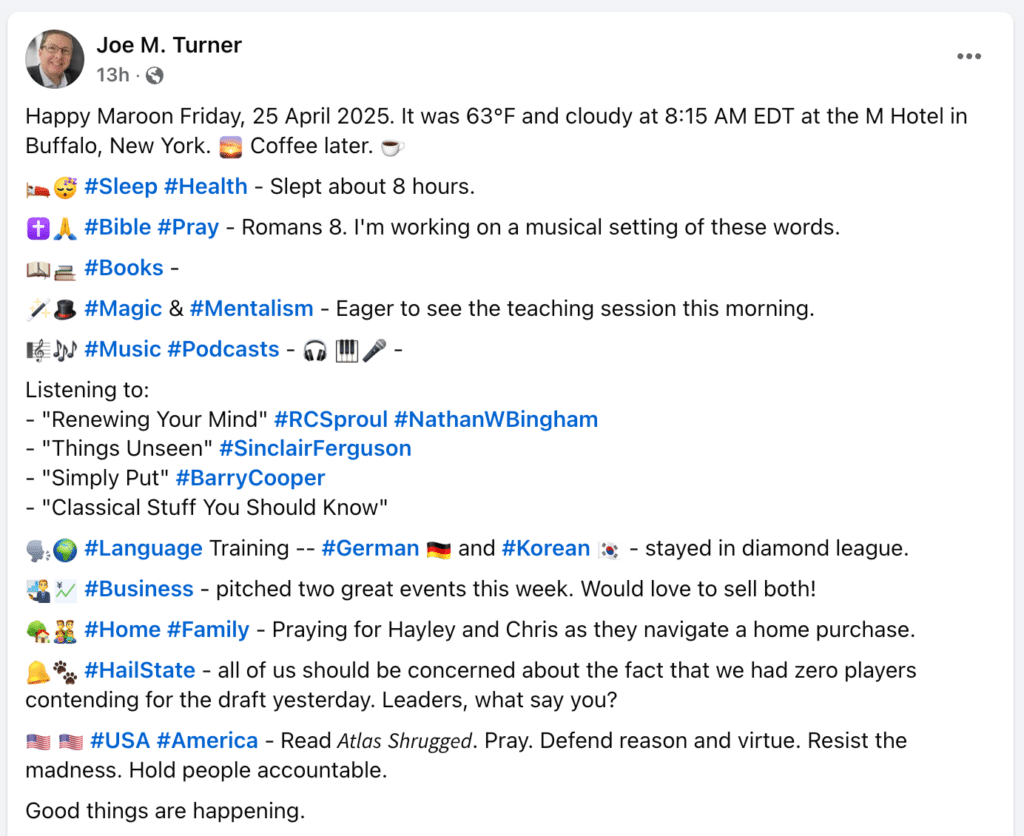The world of text is in an interesting place. Books are more accessible than ever (in terms of availability and format), yet most of our text-based communication is becoming more and more inaccessible.
The book “The Future of Text” unpacks this, and shares their view of things (from a few years ago):
“This future must indeed transcend platforms, and break text free of 2020’s proprietary binds and binaries: the boxes that seek to confine text to different ecosystems, that couch visible text into endless, unreadable metadata, that make text unreadable outside of predefined tools. In 2020, text frustrates and eludes us: uneditable PDFs; unwatchable Flash poetry; difficult to export social media data; abruptly canceled Twitter bots, existing only in archives or not at all.“
The primary source where I’m posting this is on my website via WordPress, so that I fully own and control the text. However, you might be reading this on LinkedIn or Substack or some other platform. They can be great, but the odds of being able to find this post in 10 years on either of those is not good like the LinkedIn post from my friend Chris that I could’t find less than 18 months after she first shared it.
The book shares more about what that really means:
“Passive deaths of texts on similar platforms take their texts with them: from the 2017 closure of locative discussion site Yik Yak, to the 2015 death of Facebook-esque Friendster, to the many smaller communities whose deaths go unremarked, text is continually fading out of reach. The texts that should be easily saved and ported from such deceased portals are frequently completely forgotten, rendered obsolete or inaccessible by combinations of proprietary formats, abandoned databases, and archaic tools for user archiving and export.“
As I mentioned above, this is a huge reason why I use WordPress; the content is easy to consume, back up, move, or do whatever I want with it.
This is also why I’ve ultimately settled on Obsidian for my notes. Other tools may have more features, but your text gets locked into their proprietary format with no good way out. What happens to your content in 10 years when that tool no longer exists? With Obsidian, my notes are just plain text files that I can move anywhere that I want.
A good example of this is my friend Joe on Facebook. He posts fantastic content, but (as far as I know) it’s only on Facebook. In some years, that content will be gone forever and it feels like this could be a great bit of history that would be valuable to him:

Granted, a lot of our content probably should be gone forever. Much of social media is just little quips about sports teams and other small things that don’t really matter, but a lot of it is worth more. It’s sad to know that the vast majority will get lost to the ages.
The loss of text is similar to losing data without a backup — you only really notice when disaster strikes. Unfortunately, the loss of text is happening on a relatively slow scale, so most are failing to notice it. I encourage you to notice it now and make the small shifts necessary to help your content live on.




